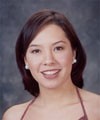This is why I don't join women's rights advocacy groups
If there were only one thing I'd fight for is to remove the adjective "mere" before women. That's it.
For your reference, I particularly like the article I read in the Inquirer today. Below is the full article.
<a href="http://business.inquirer.net/money/columns/view_article.php?article_id=42121"<"Faulty math of women's right advocates"></a>
WOMEN'S rights advocates continue to fight for a bigger share of the national landscape. But, their arithmetic is faulty.
Their claim is based on the fact that the population is 51 percent
female. To be fair, they say, the female participation in every line of
activity--whether in the professions, in politics or elsewhere--should
be at least close to this figure. Four lady associate justices of the
Supreme Court are only 27 percent of the total 15; there should be
eight lady associate justices.
The arithmetic is faulty. The advocates have not considered one
factor: by God's plan, child bearing is a woman's strict monopoly.
As a result, child rearing, thank heaven, is still a woman's noblest
profession. We should stop using the adjective "mere" when describing a
housewife.
I wonder if the National Statistics Office has any data on how many
of our women, with college degrees from the best schools, choose not to
pursue a career outside the home, and instead enjoy taking care of the
children. Are they wasting away their college education? Of course not.
At the very least, the mother helps the children with their homework.
The equation changes when the number of women who stay home to take
care of the children are deducted from the total female population.
Perhaps then, four lady associate justices of the Supreme Court are too
many. But if a woman is brilliant enough to be the chief justice,
that's fine with me.
Don't misunderstand me. I want the Filipino woman to pursue a career
if she will be good at it. Once I was at a court hearing. The witness
was a woman, about 30 years old. The private prosecutor and the defense
lawyer were both women, well-coifed and good-looking. The elderly male
judge was thoroughly enjoying the show unfolding before him.
In Asia, if not the world, the best place for a woman to be in is
the Philippines. The rice farmer's wife helps her husband in the field,
but she is never allowed to carry heavy loads. At a restaurant, the
waiter serves the women first; in other parts of Asia, the women are
served last. The Filipino woman won her right to vote 80 years ago; the
Kuwaiti women first voted last year. Even if she comes from a poor
family but is bright enough, our universal educational system allows
the Filipino woman to earn a doctorate degree; in some parts of Asia,
girls are allowed only six years of schooling.
The numbers game that the advocates of women's rights play is not
only fuzzy arithmetic, it is unnecessary. Women can carve their
rightful place in the sun by sheer persistence. This way, they can even
overwhelm.
Let's take the life insurance industry. Fifty years ago, the
Filipino male ruled the life insurance business. At Insular Life, there
was only one lady section chief. Today, most of the vice presidents are
women. There was then a handful of lady insurance agents. Today, 80
percent of the agents are women. This table of organization is repeated
in every life insurance company in the land. The life insurance
industry continues to grow by leaps and bounds.
Fifty years ago, the few actuaries in the country were all male.
Today, Filipino female actuaries, all good-looking, entirely dominate
this profession.
The non-life insurance industry has not been safe from the inroads
by women. Women occupy executive positions in many companies. More and
more lady insurance brokers qualify for licenses every year.
My concern when a woman pursues a career in the professions or
politics or business is that the family is possibly being sacrificed at
the altar of success. That can be tragic.


0 Comments:
Post a Comment
<< Home